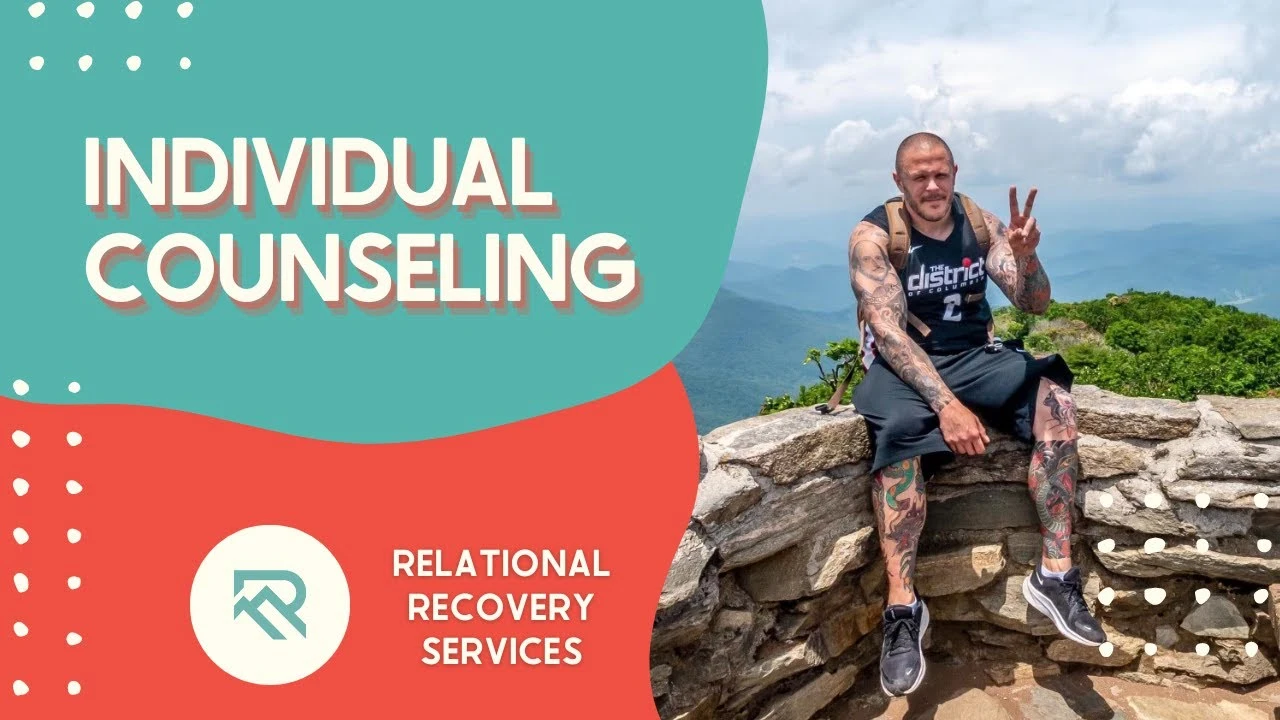Individual Counseling
Individual counseling is at the core of addiction treatment. This one-on-one therapy supports the development of healthier decision-making skills, works to resolve past traumas, and attempts to identify the source of the addiction, all within a private setting.


While physical symptoms are important in rehabilitation, they are not enough on their own. Individual counseling, which addresses the mental and psychological aspects of addiction, is an essential part of any drug and alcohol rehabilitation program. Your mental and emotional issues regarding addiction are addressed during your one-on-one session with your counselor.
You are also afforded an opportunity to unearth buried emotions, experiences, and perceptions that influenced your addiction. By bringing them into the light, you gain a certain sense of self-awareness that you can use to fight relapse. In the long term, you are encouraged to restructure your life in a healthier way without using drugs and alcohol, and you are encouraged to achieve short-term goals in your life that are directly related to your addiction.

What is Individual Counseling?
In individual counseling, there is just the patient and the counselor. This type of one-on-one therapy focuses on specific issues that the client might be experiencing. In terms of addiction, common issues might be the shame associated with drug or alcohol abuse, the difficulty of withdrawal, or the possibility of relapse. People can have a safe place to discuss issues without fear of being judged in one-on-one therapy.
The objective of individual therapy, which is sometimes referred to as talk therapy, is to help improve your emotional and physical well-being by enhancing your understanding of your own thought and behavior patterns. You may also find strategies to handle social issues, cope with difficult emotions, and handle difficult circumstances in this type of treatment.
Benefits of Individual Counseling
While physical detox is only the beginning of the recovery process from drug or alcohol addiction, mental and emotional recovery is equally significant. Because drugs and alcohol are frequently employed to deal with challenging issues and emotions, the individual who seeks recovery will have to deal with many different feelings and thoughts after they are finished with the substance. Those fragments can be put back together with help from therapy, which can help the individual cope with their issues in a more effective way. Benefits of individual therapy include:
- Improve Life Skills – Through individual counseling, individuals can learn and practice healthier problem-solving and decision-making techniques to avoid future substance use.
- Locate the Source of the Addiction – Many times, substance abuse is a form of self-medication or a method of dealing with a difficult situation or traumatic experience in life. Your counselor can help you pinpoint recurring issues and work towards healing.
- Develop Self-Acceptance – With individual therapy, you can get out of your addiction and your own feelings by sitting down with a counselor who understands how addiction impacts health. You’ll work with a counselor who understands how your addiction affects others, plus you’ll discover how to leave addiction for good through a path away from substance use. Your feelings for your counselor will develop, which will allow you to discuss your problems in a comfortable manner. You’ll work through your issues together, accumulating information from both sides. You’ll have the energy you need to overcome your problems if you are able to go through this back-and-forth and support with your counselor.
- Improve Communication Skills – Learning how to communicate effectively with others after undergoing drug rehabilitation can be accomplished through working one-on-one with a counselor in individual counselling. It’s difficult for those who have been addicted to drugs to connect with those who don’t, and this is where individual counselling comes in handy. After completing your rehabilitation program, you may still need the help of an individual counselor in order to develop the social skills you may have lost as a result of your addiction.
- Repair relationships – Making amends with these people is an important part of your recovery program. Your substance abuse is likely to have harmed a number of relationships in your life, and your councelor will help and encourage you on this delicate journey.
In order to avoid relapses, ongoing therapy is required as well. There is a wide range of potential triggers for relapse, including social problems and psychological issues. Triggers include:
Download Our FREE Integrative Support eBook
- Stressors – A person experiencing work-related, marital, familial, or another type of stress may resort to self-medication by abusing substances. Individual therapy can help find more constructive methods of coping with these stressors.
- Social Interactions – People with substance use problems may find it difficult to maintain friendships with people who also drink or use drugs, particularly if they continue to do so. Additionally, there may be pressure to participate again. Seeking professional help may help individuals understand this and develop healthier relationships, as well as manage tricky social situations.
- Environmental Factors – Researchers have found that revisiting the same location, eating at the same restaurant, or drinking at the same bar as prior drug or alcohol consumption can trigger old thoughts and behaviors. Clients who participate in individual counseling can apply learned coping skills to these situations.
Individual Counseling at Relational Recovery Services
Individual counseling with one of our skilled counselors will assist you in handling issues in a healthy manner, controlling your emotions, avoiding relapse, and improving self-esteem By learning how to successfully manage these feelings, the recovery process will become far less difficult.
Please contact us to learn more about our services and how we can help you recover your life and regain your self-confidence. We at Relational Recovery Services want you to live a healthy, meaningful, enjoyable, and drug-free life. Call us today.
Snippet: Individual counseling is an integral component of the recovery process. Our highly trained counsellors work with clients to identify the root source of their addiction, heal from past trauma, and repair any damage done by substance abuse. This form of one-on-one therapy acts as a safe space for clients to reflect on past behaviors and work towards developing healthy decision-making skills.

